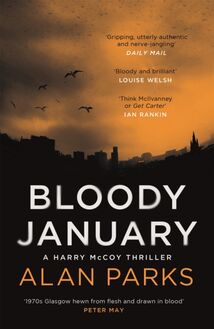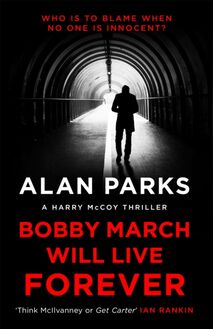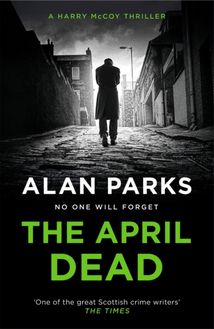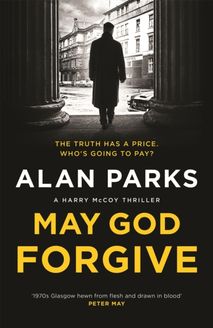-
 Univers
Univers
-
 Ebooks
Ebooks
-
 Livres audio
Livres audio
-
 Presse
Presse
-
 Podcasts
Podcasts
-
 BD
BD
-
 Documents
Documents
-
- Cours
- Révisions
- Ressources pédagogiques
- Sciences de l’éducation
- Manuels scolaires
- Langues
- Travaux de classe
- Annales de BEP
- Etudes supérieures
- Maternelle et primaire
- Fiches de lecture
- Orientation scolaire
- Méthodologie
- Corrigés de devoir
- Annales d’examens et concours
- Annales du bac
- Annales du brevet
- Rapports de stage
La lecture à portée de main
Vous pourrez modifier la taille du texte de cet ouvrage
Découvre YouScribe en t'inscrivant gratuitement
Je m'inscrisDécouvre YouScribe en t'inscrivant gratuitement
Je m'inscrisEn savoir plus
Vous pourrez modifier la taille du texte de cet ouvrage
En savoir plus

Description
Sujets
Informations
| Publié par | Canongate Books |
| Date de parution | 28 décembre 2017 |
| Nombre de lectures | 2 |
| EAN13 | 9781786891358 |
| Langue | English |
Informations légales : prix de location à la page 0,0360€. Cette information est donnée uniquement à titre indicatif conformément à la législation en vigueur.
Extrait
The paperback edition published in 2019 by Canongate Books First published in Great Britain and Canada in 2017 by Canongate Books Ltd, 14 High Street, Edinburgh EH1 1TE Distributed in Canada by Publishers Group Canada canongate.co.uk Copyright © Alan Parks, 2017 Extract from February’s Son copyright © Alan Parks, 2019 The right of Alan Parks to be identified as the author of this work has been asserted by him in accordance with the Copyright, Designs and Patents Act 1988 All reasonable effort has been made to identify and contact the copyrightholders of the text printed in this publication. Any omissions are inadvertent andany party who believes their copyright has been infringed is invited to contactthe publisher, who will be pleased to make any necessary arrangements at theearliest opportunity. British Library Cataloguing-in-Publication Data A catalogue record for this book is available on request from the British Library ISBN 978 1 78689 136 5 eISBN 978 1 78689 135 8
Contents
1st January 1973
One
Two
2nd January 1973
Three
Four
Five
Six
Seven
3rd January 1973
Eight
Nine
Ten
Eleven
4th January 1973
Twelve
Thirteen
Fourteen
Fifteen
Sixteen
Seventeen
Eighteen
Nineteen
5th January 1973
Twenty
6th January 1973
Twenty-One
Twenty-Two
Twenty-Three
7th January 1973
Twenty-Four
Twenty-Five
8th January 1973
Twenty-Six
Twenty-Seven
9th January 1973
Twenty-Eight
Twenty-Nine
Thirty
Thirty-One
Thirty-Two
Thirty-Three
10th January 1973
Thirty-Four
Thirty-Five
11th January 1973
Thirty-Six
Thirty-Seven
Thirty-Eight
Thirty-Nine
Forty
Forty-One
20th January 1973
Forty-Two
Acknowledgements
For my mum and dad
‘For indeed any city, however small, is in fact divided into two, one city of the poor, the other of the rich; these are at war with one another.’
– Plato
‘Every picture tells a story, don’t it?’
– Rod Stewart
It became one of the cases cops mark their career by. Peter Manuel, Bible John and Bloody January. Nobody really knew where the name came from, probably some passing remark in Pitt Street or in a pub next to Central. The papers got a hold of it pretty quick. Banner headlines straight away. Most famous one still framed and hung up in stations across in the city.
BLOODY JANUARY: HOW MANY MORE TO DIE?
Years later the cops that worked Bloody January would tell the younger guys that they had no idea what it was really like back then. Six bodies in one week. They’d sit in pubs and reminisce, retired now, run to fat and drinking too much because they had nothing else to do. They’d tell their war stories, about how close they came to an arrest or finding one of the bodies. The younger ones would smile and nod, listen with one ear on the football results coming out the TV, thinking, ‘It can’t have been that bad.’
But it was.
1st January 1973
ONE
McCoy headed along the corridor towards the stairs, heels clicking on the metal walkway, breath clouding out in front of him. Never changed, Barlinnie. Freezing in the winter, boiling in the summer. The old Victorian building was on its last legs. Wasn’t built for the number of prisoners they had stuffed into it now. Three, sometimes four of them locked up in a cell made for two. No wonder the whole prison stank. The smell of overflowing slop buckets and stale sweat was so thick it caught in the back of your throat soon as the big doors opened; stuck to your clothes when you left.
He’d been coming up here since his first weeks on the beat. Only good thing about Barlinnie was that it saved you going anywhere else. The whole spectrum of Glasgow’s wrongdoers ended up in here. From rapists and murderers, nonces and kiddie fiddlers to bewildered old men caught coming out the Co-op with two tins of salmon stuffed up their jumpers and their wives not long in the ground. Barlinnie wasn’t fussy, it took them all in.
He leant over the balcony rail, peered through the netting and the fug of tobacco smoke at the rec hall below. Usual crowd milling about in their denims and white plimsolls. Couple of boys whose names he couldn’t remember playing ping-pong. Low-level troops from the gangs in the Milton gathered round the pool table, all long hair, moustaches and borstal tattoos. One of them pointed with his cue as Jack Thomson was wheeled in front of the TV, started sniggering. A year ago he would have been too scared to even look at someone like Thomson. Now the poor bastard had a dent in his head so deep it was visible from up here. That’s what happens when someone takes a sledgehammer to each knee and then gives you a few whacks on the head for luck. Can’t walk and your brain’s so scrambled you don’t even know where you are.
He buttoned up his trench coat, blew in his hands. Really was fucking freezing in here. A wee fat guy stood up from the card school, looked up, nodded. Steph Andrews. Still kidding himself that no one in here knew he was a tout. McCoy dug in his pocket, took out one of the packets of Regal he’d brought with him and dropped it over the side. Steph had caught it, pocketed it and was off before anyone even noticed. First rule of a visit to Barlinnie: bring fags. McCoy leant over a bit further, still couldn’t see the reason he’d come up here.
‘Feeding time at the zoo, eh?’
He turned and Tommy Mullen was leaning on the rail next to him. He took his cap off, scratched at his head. When McCoy had first started coming up to Barlinnie, Mullen’s hair had been black. It was mostly grey now.
‘How much longer you got now, Tommy?’ he asked.
‘Three more cunting weeks. Counting the days.’
‘Not sad you’re going then?’
‘Joking, aren’t you? Cannot fucking wait. Wife’s brother’s bought a wee caravan down in Girvan. Fresh air. Get the stink of this place out my nose.’
‘What is it he wants anyway?’ McCoy asked. ‘All I got was a call at the station to get up here.’
Mullen shrugged. ‘Think he’s going to tell me?’ He took a roll-up out his baccy tin and lit up. McCoy looked over the balcony again, tried to see him in the crowd.
‘You’ll no see him down there,’ said Mullen. ‘He’s been moved. He’s in the Special Unit now.’
McCoy let out a low whistle. The mysterious Special Unit. Nobody knew much about it or how it was supposed to work. Had been set up last year. Prison Services embracing the sixties far too late. McCoy remembered a news conference on the telly. A grim-faced warden sitting behind a desk flanked by two hippy professor types. The hippies blabbering on about Art Therapy, Positive Custody and Breaking Barriers.
Even though it was early days, any mention of the Special Unit was enough to start the papers frothing at the mouth, most of the polis too. According to them the Special Unit was going to be Sodom and Gomorrah rebuilt on the banks of the Clyde. According to the hippies it was just a small section of the prison where top security prisoners would be treated like human beings. McCoy wasn’t too bothered either way, wasn’t like the usual stuff was working anyway. Bully squads beating the fuck out of troublesome prisoners, sticking them in cages in freezing wet basements. Far as he could see it just made those nutters worse; all the more determined to stab or batter any screw that looked at them the wrong way.
Mullen and McCoy left the main building and ran across the prison yard, coats over their heads, heading for a red door in the far wall. Weather was getting worse again, icy sleet, wind whipping leaves and rubbish across the yard. Mullen pulled the red door open and they were in.
McCoy just stood there looking, taking it in. Alice through the looking glass.
There were two greenhouses in front of them, full of flowers and tomato plants. Beds had been dug out the concrete, planted with neat rows of vegetables. A fenced-off area at the side was full of huge lumps of stone with half-finished faces or bodies carved into them, granite glistening in the wet. The door of a wee shed beside them opened and a thin bloke stepped out, long blond hair, chisel in his hand, dusty leather apron. He lifted up his safety goggles.
‘All right, Tommy?’ he asked. ‘No seen you for a while.’
Took a couple of seconds for McCoy to realise who he was. Bobby Munro. Couldn’t help but smile. Bobby ‘Razor’ Munro standing in Barlinnie with a chisel in his hand? No wonder the papers were going mental. Must be the first time he’d used one for its real purpose; normally he’d have had it at someone’s throat.
‘Aye, all good,’ said Mullen. ‘Looking for Howie.’
‘He’ll be stuck in front of the TV as per.’ He pointed to a door. ‘Through there.’
‘So you’re Tommy now, are you?’ asked McCoy, as they went in. ‘All best pals. That how it works?’
‘Don’t fucking start me,’ said Mullen, as they walked through the door. ‘That took a lot of getting used to, I’ll tell you. “The use of surnames is demeaning and depersonalising and must be phased out,”’ he recited in a posh voice. ‘Load of fucking pish.’
Last time McCoy had been in the washing block it was full of big industrial machines churning away, men standing behind big electric presses, half hidden in the clammy steam. Not now. Now it was almost empty, painted white, framed pictures and posters on the walls, huge iron sculpture in the middle of the floor. As far as McCoy could make out it seemed to be two dogs with human faces fighting each other, or maybe fucking each other, couldn’t quite tell. Mullen pointed at a door in the corner.
‘Lounge is over there.’
McCoy stepped through. He didn’t know what he was expecting, but whatever it was it wasn’t this. It was like stepping into your auntie’s cosy front room. Geometric wallpaper, two-bar fire going full blast and a three-piece suite with wooden arms positioned round a colour TV. Didn’t even smell of slop buckets. Only one thing was spoiling the cheery atmosphere: Howie Nairn. He was sitting slumped on the couch. No denims and white sandshoes for the prisoners in the Special Unit. They got
-
 Univers
Univers
-
 Ebooks
Ebooks
-
 Livres audio
Livres audio
-
 Presse
Presse
-
 Podcasts
Podcasts
-
 BD
BD
-
 Documents
Documents
-
Jeunesse
-
Littérature
-
Ressources professionnelles
-
Santé et bien-être
-
Savoirs
-
Education
-
Loisirs et hobbies
-
Art, musique et cinéma
-
Actualité et débat de société
-
Jeunesse
-
Littérature
-
Ressources professionnelles
-
Santé et bien-être
-
Savoirs
-
Education
-
Loisirs et hobbies
-
Art, musique et cinéma
-
Actualité et débat de société
-
Actualités
-
Lifestyle
-
Presse jeunesse
-
Presse professionnelle
-
Pratique
-
Presse sportive
-
Presse internationale
-
Culture & Médias
-
Action et Aventures
-
Science-fiction et Fantasy
-
Société
-
Jeunesse
-
Littérature
-
Ressources professionnelles
-
Santé et bien-être
-
Savoirs
-
Education
-
Loisirs et hobbies
-
Art, musique et cinéma
-
Actualité et débat de société
- Cours
- Révisions
- Ressources pédagogiques
- Sciences de l’éducation
- Manuels scolaires
- Langues
- Travaux de classe
- Annales de BEP
- Etudes supérieures
- Maternelle et primaire
- Fiches de lecture
- Orientation scolaire
- Méthodologie
- Corrigés de devoir
- Annales d’examens et concours
- Annales du bac
- Annales du brevet
- Rapports de stage










